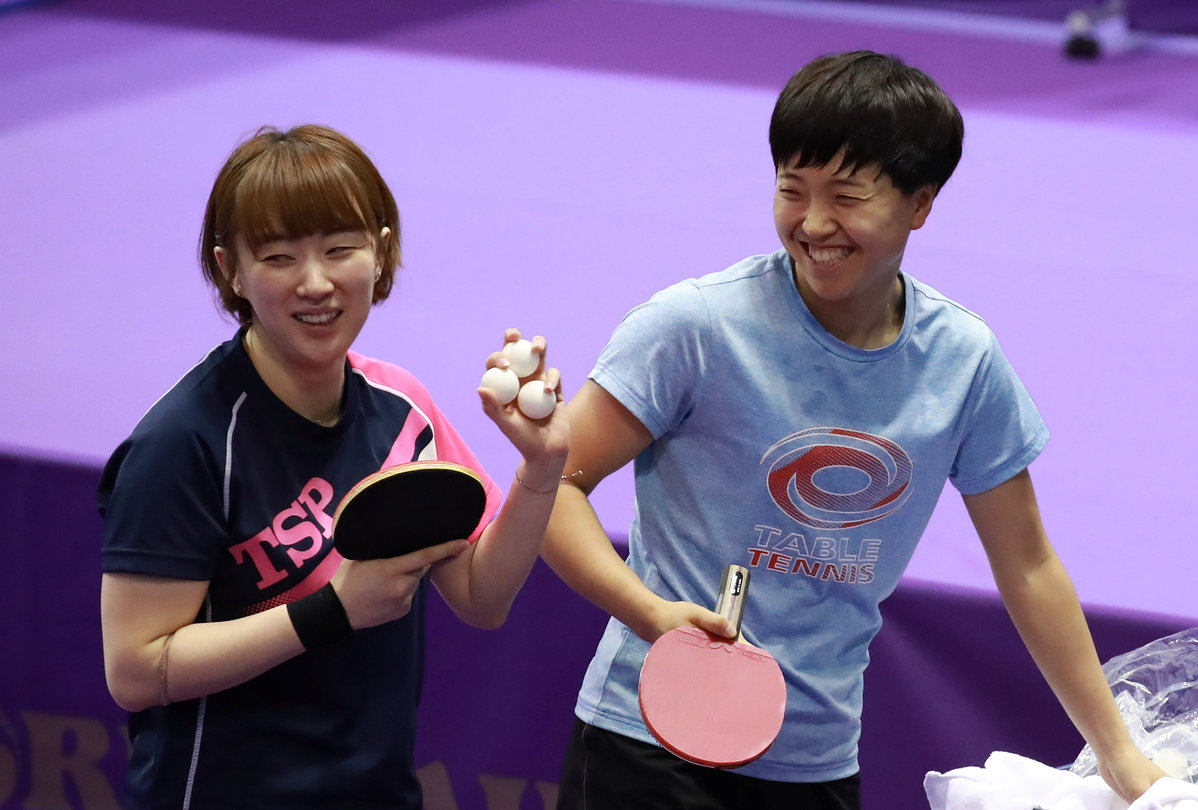Ping-pong diplomacy between neighbors opens 'new chapter'


SEOUL - Table tennis players from the Democratic People's Republic of Korea and the Republic of Korea played together in an international tournament on Tuesday in the latest installment of Korean sporting diplomacy.
The sport has long had an unusual impact in foreign affairs, most notably in the "ping-pong diplomacy" of the 1970s between China and the United States.
The DPRK's 16 athletes will participate in the World Tour Platinum Korea Open that began in the central city of Daejeon on Tuesday and will continue until Sunday.
Four - including the DPRK's 2016 Olympic women's singles bronze medalist Kim Song-yi - will join a ROK counterpart in the doubles, with the first two mixed pairs going into action on Tuesday.
The first time table tennis players from the two neighbors formed a joint team was for the world championships back in 1991, during an earlier period of rapprochement on the divided peninsula, when they shocked China to win the women's team gold.
In another goodwill gesture, the two countries have also agreed to field combined teams in some sports during the August Asian Games in Indonesia.
Sports diplomacy has played a large part in facilitating dialogue between the two neighbors in recent months.
The DPRK sent hundreds of athletes, artists and officials to February's Winter Olympics in the ROK.
The two neighbors marched together behind a unification flag at the Games' opening ceremony and formed a unified women's ice hockey team, while the host's President Moon Jae-in seized the opportunity to broker talks between Pyongyang and Washington.
The DPRK's top leader Kim Jong-un has since met ROK President Moon Jae-in twice and also US President Donald Trump last month in Singapore to discuss ways to resolve the nuclear standoff.
'Beyond symbolism'
During periods of warmer ties, the two neighbors - which technically remain in conflict after the 1950-53 Korean War ended with armistice instead of a peace treaty - have regularly sought to use sports as a symbol of reconciliation.
"Sports is the easiest and least controversial link the two countries can share, and there is little political burden in sports-related cooperation," said Lee Chang-seop, professor of physical education at Chungnam National University.
Many joint teams have been hailed more for their symbolism than their performance - the Winter Olympics women's ice hockey team lost all five of their matches, outscored by a total of 36 to 2.
But the prospects for table tennis may be rosier - the ROK is a power in the sport, with 18 Olympics medals to its name, second only to China.
"We have convened the best players from the both sides," said Kim Taek-soo, who coaches the ROK men's team.
Afp - Ap

































